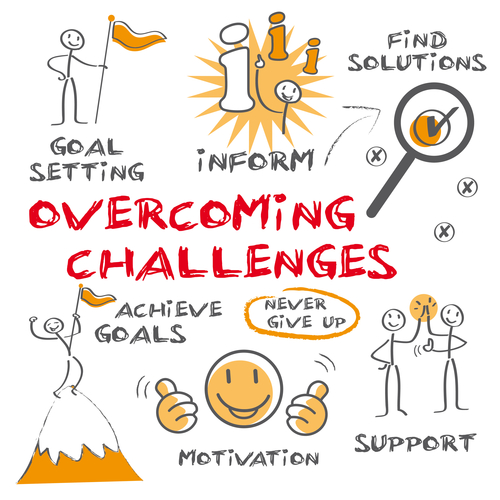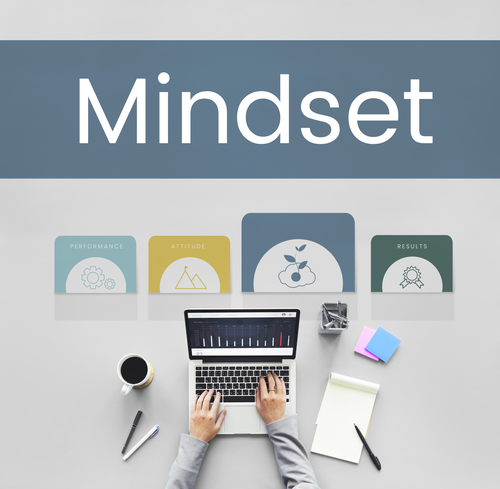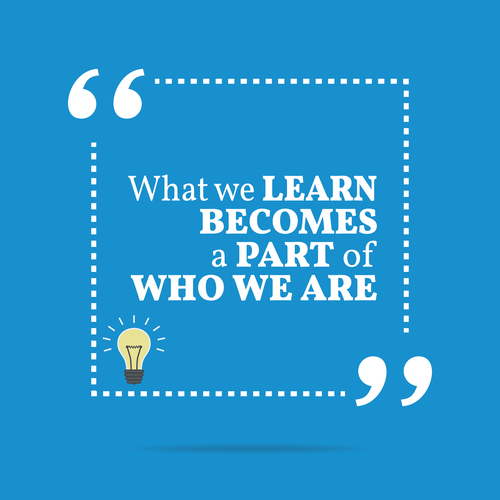 Sometimes, I have the pleasure of working with people who are in transition into really big things. These are clients who are taking on challenging new roles or opportunities. In those situations, I always count on sharing some fundamentals that I learned in graduate school about learning and motivation. This material is now part of Psychologist Carol Dweck’s more recent work on learning or growth mindsets.
Sometimes, I have the pleasure of working with people who are in transition into really big things. These are clients who are taking on challenging new roles or opportunities. In those situations, I always count on sharing some fundamentals that I learned in graduate school about learning and motivation. This material is now part of Psychologist Carol Dweck’s more recent work on learning or growth mindsets.
New roles often feel like high stakes situations. Failure isn’t a desirable outcome. To make things more complicated, some people also struggle with the Impostor Syndrome during the early phases of their new roles. Yet, somehow, others are not bothered much even though their roles are just as difficult.
This begs the questions:
- Why do some people succeed when others don’t?
- What elements are within our control to help foster our success?
Although her work is not without controversy, in my experience, Dweck’s theory of the two mindsets and the difference that they make in outcomes is incredibly powerful and useful.
 “In a fixed mindset, people believe their basic qualities, like their intelligence or talent, are fixed traits. They spend their time documenting their intelligence or talent instead of developing them.” This mindset implies that since “you only have a certain amount of intelligence, a certain personality [or leadership style], then you’d better prove that you have a healthy dose of them.”
“In a fixed mindset, people believe their basic qualities, like their intelligence or talent, are fixed traits. They spend their time documenting their intelligence or talent instead of developing them.” This mindset implies that since “you only have a certain amount of intelligence, a certain personality [or leadership style], then you’d better prove that you have a healthy dose of them.”
I’d argue that sheer intelligence or talent can only get you so far. I’d also argue that anecdotally, this mentality may inspire arrogance fueled by overcompensation.
In the fixed mindset, “Every situation calls for a confirmation of [one’s] intelligence, personality, or character. Every situation is evaluated: Will I succeed or fail? Will I look smart or dumb? Will I be accepted or rejected? Will I feel like a winner or a loser?” That’s an awful lot of pressure. It’s also a big mental or cognitive drain away from doing one’s actual work. Sadly, when this mindset is the predominant one that’s shared by people within an organization, it may contribute to a workplace culture or climate that misses many opportunities for innovation, creativity, inclusion, and calculated risk-taking.
The fixed mindset is also consistent with the ‘talent management’ movement and organizations where ‘talented‘ people are given the most interesting assignments, clients, and opportunities.
 In contrast, the growth mindset creates a powerful passion for learning and development. “In a growth mindset, people believe that their most basic abilities can be developed through dedication and hard work—brains and talent are just the starting point. This view creates a love of learning and a resilience that is essential for great accomplishment.”
In contrast, the growth mindset creates a powerful passion for learning and development. “In a growth mindset, people believe that their most basic abilities can be developed through dedication and hard work—brains and talent are just the starting point. This view creates a love of learning and a resilience that is essential for great accomplishment.”
When we see ourselves as capable works-in-progress who will continue to improve over time, it’s easier to avoid being paralyzed by the impostor syndrome when we are trying challenging new things. We can keep working hard and doing our best while recognizing that we’re on a learning curve of ongoing improvement.
If you’d like to learn more about mindsets, a good place to start is this video, Developing a Growth Mindset with Carol Dweck.
Do you need help navigating the world of work? Contact Dr. Helen today for a free and confidential initial consultation by phone, email, or via direct message on Twitter, Facebook, or LinkedIn. If something urgent comes up, I’m also available by a voice or video on Magnifi, an expertise-on-demand app.
Have you ever wished you could get inside the head of a hiring manager? You can. Dr. Helen Ofosu is a Career Coach/Counsellor with a difference. She has worked for organizations to create hiring and screening tools. She’s created countless pre-screening tests, interviews, simulations, and role plays for organizations of all kinds.
Dr. Helen’s training in Industrial and Organizational (I/O) Psychology means she is a genuine expert in evaluating work-related behaviours. She uses those skills to help hiring managers tell the difference between people who say the right things during interviews and people who actually deliver on the job. In other words, Dr. Helen understands first-hand how job candidates are assessed.
More than career coaching, it’s career psychology®.
I/O Advisory Services – Building Resilient Careers and Organizations.
Please share this article using any of the social media icons below.



